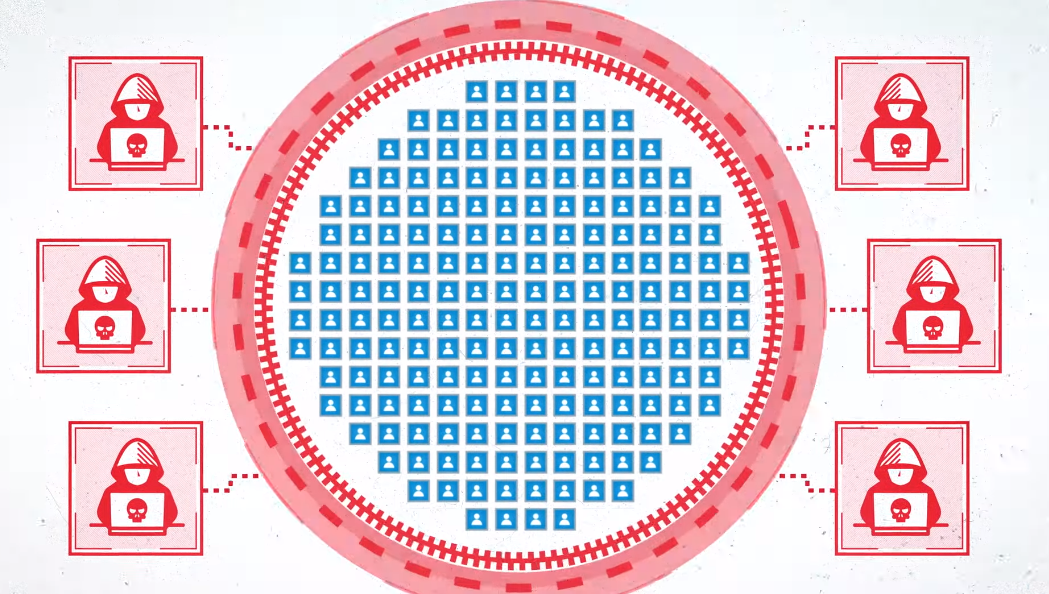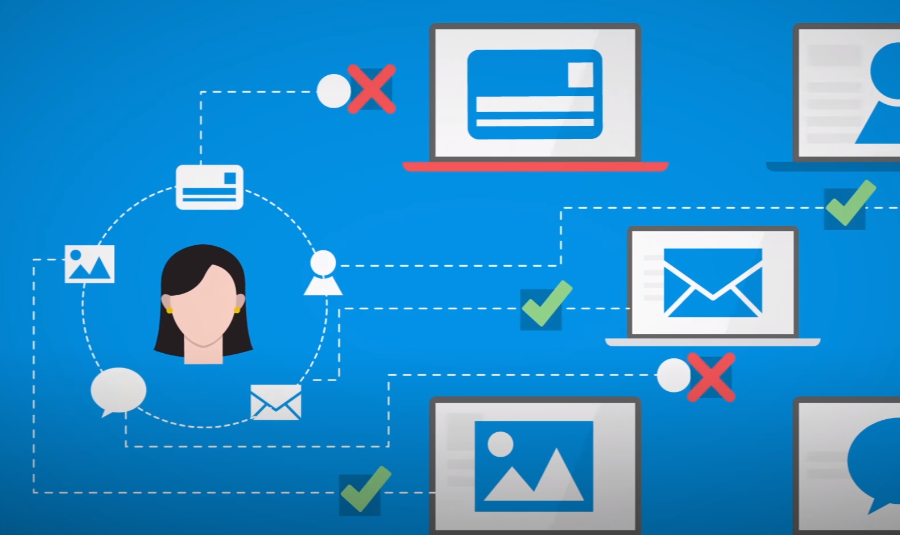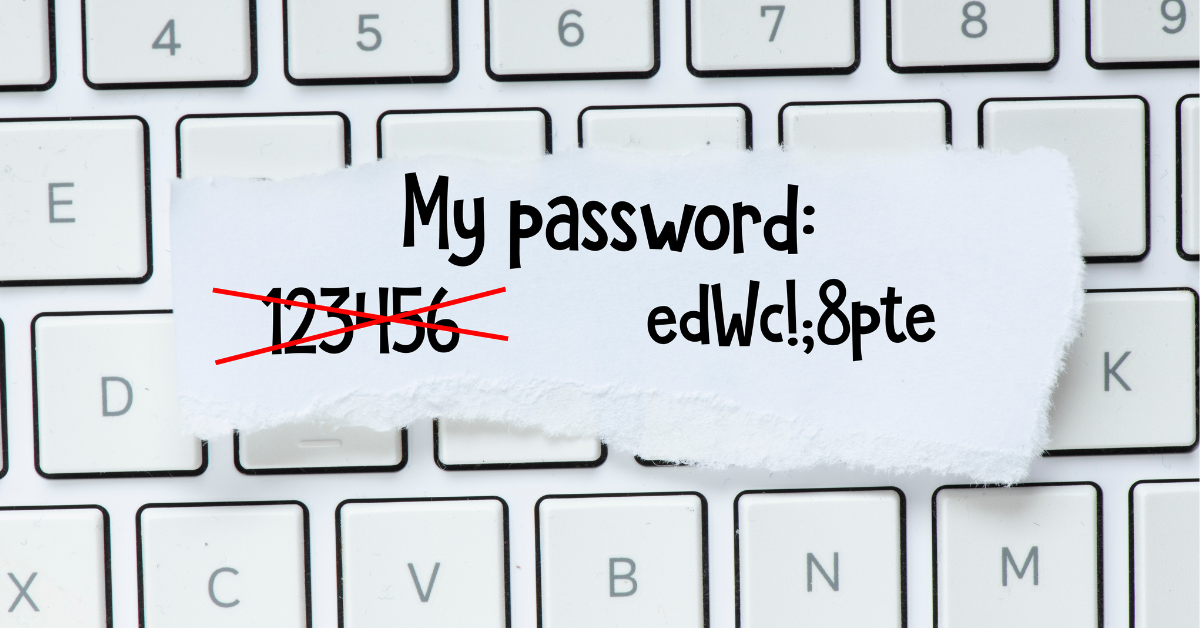Data privacy refers to the right of individuals to keep their sensitive information private and secure. It involves controlling how data is collected, used, shared, and stored by organizations that collect it. Data privacy laws exist in many countries worldwide to protect personal information from misuse or unauthorized access.
The importance of data privacy has grown significantly with the increasing use of technology and the internet. Businesses or criminals can now easily access personal information such as names, addresses, phone numbers, credit card details, and browsing history without our knowledge or consent. This puts individuals at risk of identity theft, fraud, cyberbullying, and other harm.
Data breaches are also becoming more common, with organizations targeted by hackers who seek to gain access to sensitive data for malicious purposes. Thus individuals must understand their rights regarding their data and take necessary measures, such as using strong passwords or two-factor authentication to protect themselves from potential threats.
Understanding Data Privacy
Why Does Data Privacy Matter?

Data privacy matters for many reasons. It is a fundamental human right that ensures individuals control their personal information. It also helps prevent fraud and cybercrime by protecting sensitive data from unauthorized access. Additionally, complying with data privacy regulations like GDPR ensures transparency in how companies collect and use customer data while building trust between them.
How Data Is Collected And Used By Organizations?
Companies collect various types of data, such as personal information, demographic details, browsing history, purchase behaviour, and more, to gain an understanding of their customers. This data is then used to improve customer experiences or create targeted marketing campaigns.
However, the collection and usage of this data have raised privacy concerns. When handling sensitive customer data, organisations must comply with privacy regulations such as the General Data Protection Regulation (GDPR) or the California Consumer Privacy Act (CCPA). Failure to comply can result in hefty fines and damage a company’s reputation.
The Difference Between Data Privacy And Data Security
Data security protects data from unauthorized access, theft, or damage. It involves firewalls, antivirus software, encryption, and password protection to safeguard sensitive information.
Data privacy refers to the right of individuals to control how their personal information is collected and used by organizations. This means that companies must obtain explicit consent before collecting personal data and use it only for the purposes specified at the time of collection. They must also provide individuals access to their data upon request and allow them to correct any inaccuracies.
Laws And Regulations
Overview Of Key Data Privacy Laws And Regulations, Such As GDPR And CCPA

The General Data Protection Regulation (GDPR) is a European Union law enacted in May 2018. The GDPR regulates how the personal data of EU citizens should be collected, processed, and stored by businesses and organizations. It gives individuals more control over their personal information, including the right to access, correct, and delete it. Companies must also obtain explicit consent from individuals before collecting their data.
The California Consumer Privacy Act (CCPA) is another major data privacy regulation that became effective in January 2020. It applies to companies that do business with California residents and requires them to disclose what personal information they collect and share with third parties. The CCPA also gives consumers the right to request that their data be deleted or not sold.
In addition to these two regulations, other laws and regulations around the world protect individuals’ data privacy rights. These include Japan’s Personal Information Protection Act (PIPA), the Data Protection Act in the United Kingdom, and many others.
How Do These Laws Protect Individual Privacy Rights?
One of the fundamental ways in which data privacy laws protect individual privacy rights is by regulating how personal data is collected, used, and shared. For instance, the General Data Protection Regulation (GDPR) imposes strict rules on businesses that collect personal data from people within the European Union (EU). Under this law, individuals have the right to know what information companies hold about them and how it’s being used. They can also request that their data be erased or corrected if it’s inaccurate.
Another example of how these laws protect privacy rights is through consent requirements. Many data privacy laws require organizations to obtain explicit consent from individuals before collecting or using their personal information. This means that people have more control over who has access to their sensitive information and for what purposes it will be used.
The Consequences Of Non-Compliance With These Regulations:
Companies that fail to comply with data privacy regulations may face legal sanctions and damage their reputation. Fines for non-compliance can be hefty—sometimes reaching millions of dollars—and regulatory bodies may require companies to take corrective action or implement additional security measures.
Risks To Data Privacy
The different ways in which personal data can be compromised
Personal data can be compromised in several ways, from the most common methods like phishing and hacking to more sophisticated techniques like social engineering.
- Phishing is a fraudulent attempt to obtain sensitive information such as usernames, passwords, and credit card details by disguising oneself as a trustworthy entity. Hackers use various methods to gain unauthorized access to a system or network to steal personal information.
- Social engineering involves manipulating individuals into revealing confidential information by posing as an authority figure or someone trustworthy. This technique relies heavily on psychological manipulation and deception tactics that exploit human behaviour patterns.
- Cybercriminals can also compromise personal data through malware attacks, where malicious software is installed on a computer system without the user’s knowledge or consent.
The Potential Consequences Of A Data Breach
For individuals, a data breach can result in identity theft, financial loss, and damage to their credit score. Hackers may use stolen personal information such as social security numbers or bank account details to make unauthorized purchases or obtain loans under someone else’s name.
Businesses that experience a data breach may also face severe consequences. They could be subject to legal action from affected customers, resulting in costly lawsuits and settlements. In addition, a data breach can damage a company’s reputation and erode customer trust, leading to decreased sales and revenue.
Protecting Your Data Privacy
Best Practices For Protecting Your Personal Data Online
Use Strong And Unique Passwords

Avoid using common words or phrases that are easy to guess, and never reuse passwords across multiple accounts. It’s also important to enable two-factor authentication whenever possible, which requires a second form of verification (such as a text message or fingerprint scan) and your password.
Be Cautious About Sharing Personal Information Online
Be mindful of what you post on social media and avoid oversharing details like your full name, address, phone number, or birthdate. Additionally, be wary of suspicious emails or messages that ask for personal information or contain links to unknown websites.
Consider Using (VPNs) And Ad Blockers When Browsing The Web
VPNs encrypt your internet traffic and hide your IP address from prying eyes, while ad blockers can help prevent targeted advertisements from tracking your online activity.
How To Identify And Avoid Common Privacy Pitfalls?
The most common privacy pitfalls include phishing scams, weak passwords, unsecured Wi-Fi networks, outdated software systems or applications, insecure websites, social engineering attacks and physical theft.
To avoid these pitfalls, you should always be wary of unsolicited emails or texts requesting your personal information; use strong passwords for all your accounts and avoid using the same password for multiple accounts; never connect to an unsecured Wi-Fi network in a public place.
Only download apps from reputable sources like Google Play Store or Apple App Store; make certain websites you visit have secure connections (look for “https” in the URL); be cautious when sharing sensitive information online or over the phone with someone who claims to represent a company; keep physical devices such as laptops and smartphones locked when not in use.
Tools And Resources For Enhancing Your Data Privacy
A VPN creates a secure encrypted connection between your device and the internet, making it difficult for anyone to intercept your online activity. Many VPN services are available in the market, each with different features and pricing plans. Another useful tool is an ad-blocker extension which blocks ads from appearing on websites you visit. These ads often contain trackers that collect data about your online behaviour, so blocking them can significantly improve your privacy. Popular Ad-blockers include AdBlock Plus, uBlock Origin, and Ghostery.
Company Perspectives
How Organizations Can Prioritize Data Privacy?
The first step that organizations can take to prioritize data privacy is to implement strong security measures. This includes firewalls, encryption, and multi-factor authentication to protect sensitive information from unauthorized access. Companies should also regularly update their software and systems to prevent vulnerabilities that hackers could exploit.
Organizations should have a designated team responsible for ensuring compliance with data protection regulations, such as the General Data Protection Regulation (GDPR) or the California Consumer Privacy Act (CCPA). They should also conduct regular employee training sessions to educate staff on best practices for handling confidential information.
Companies should provide clear and concise privacy notices that explain what types of information are being collected, how it will be used, and who it will be shared with. Organizations should also give individuals control over their data by allowing them to opt out of certain types of processing or request access to their information.
The Benefits Of Prioritizing Data Privacy
It helps enhance your security online. When you keep your personal information secure, no one can access it without permission. This means hackers cannot penetrate your system to steal sensitive data like passwords or bank account details. Data privacy can also prevent cyber attacks like phishing scams or malware infections.
It limits identity theft. Identity thieves often target people who lack proper measures to protect their personal information online, making them vulnerable to fraudulent activities like credit card fraud or opening unauthorized accounts in their name. Protecting your private information ensures that identity thieves cannot use this information for illegal purposes.
It protects you from frauds such as catfishing scams and spam emails. These scams rely on obtaining personal details from unsuspecting victims to commit fraudulent activities such as extracting funds or stealing identities.
The Future Of Data Privacy
Emerging Technologies And Their Impact On Data Privacy:
Emerging technologies such as artificial intelligence, machine learning, and the internet of things are transforming how we collect, process, and use data. While these technologies offer new opportunities for businesses to improve efficiency and enhance their services, they also pose significant risks to data privacy. For example, AI algorithms can analyze massive amounts of personal data to make targeted recommendations or decisions, but they can also perpetuate biases or discriminate against certain groups.
As more devices become connected through the IoT, individuals’ personal information is increasingly vulnerable to cyberattacks or breaches. The vast amount of data generated by IoT devices poses challenges for ensuring that it is collected and stored securely while still providing value to users.
How Are Data Privacy Laws And Regulations Evolving To Keep Pace With Technological Advancements?
With more and more personal information being collected and stored online, governments around the world are taking steps to protect citizens’ data privacy rights.
One of the most significant developments in recent years is the introduction of regulations such as the General Data Protection Regulation (GDPR) in Europe and the California Consumer Privacy Act (CCPA) in the United States. These laws give individuals more control over their personal data, requiring companies to obtain explicit consent before collecting or processing it, and giving consumers the right to request access to or deletion of their data.
Predictions For The Future Of Data Privacy
As we move towards a future where tech is integrated with every aspect of our lives, the protection of personal data has become more important than ever before.
Governments will enact stricter regulations to protect individuals’ rights to their own data. This could include requiring companies to obtain explicit consent from users before collecting or using their information, as well as providing greater transparency about how that information is being used.
Technology will lead to new ways to protect personal data. For example, blockchain technology could be used to create decentralized platforms where users maintain control over their own information. Additionally, artificial intelligence and machine learning could be utilized for better privacy protection by detecting potential breaches or unauthorized access in real-time.
FAQs
What Personal Information Should I Be Most Concerned About Protecting?
It is important to protect all personal information, but certain types of data can be more valuable to hackers or malicious actors.
Financial information, such as bank account numbers and credit card details, should be at the top of your list in terms of protection. These types of data can be used for fraudulent purchases or identity theft.
Login credentials. This includes usernames and passwords for various accounts such as email, social media, and online banking. Hackers can use this information not only to gain access to those specific accounts but also potentially other accounts if you use the same login credentials across multiple platforms.
Sensitive personal information such as Social Security numbers and medical records should also be given special consideration when it comes to privacy protection. These types of data can have serious consequences if they fall into the wrong hands and lead to identity theft or medical fraud.
How Can I Tell If A Website Is Secure And Respects My Privacy?
To determine whether or not a website respects your privacy, there are certain indicators you can look for.
The first thing you should check for is the padlock icon in the address bar. This symbol indicates that the connection between your browser and the website is encrypted, which means that any data transmitted between you and the site will be protected from prying eyes. Another way to tell if a website respects your privacy is by checking its privacy policy. Every reputable site should have this document easily accessible on their homepage.
In addition, take note of how much personal information they request from you when registering or making purchases. Less reputable websites might ask for more than necessary, while trustworthy sites will only require essential details such as name, email address, and billing information if applicable.
Who Are Data Users In Data Privacy?
Data users in data privacy refer to individuals, organizations, or institutions that collect, process, and use personal information for various purposes. These can include companies using customer data to improve their products or services, researchers conducting studies on demographic trends or health outcomes, and government agencies collecting data for policy-making decisions.
What Should I Do If I Suspect My Personal Data Has Been Compromised?
Change all of your passwords immediately. This includes not just the password for the account that was breached, but also any other accounts that use the same or similar credentials. It’s crucial to create unique, complex passwords for each account and enable two-factor authentication whenever possible.
Notify any organizations or businesses where your data may have been compromised. They’ll be able to take steps to secure their systems and prevent further breaches. Additionally, monitor your financial accounts and credit reports regularly to catch any suspicious activity.
Consider using a reputable identity theft protection service such as LifeLock or IdentityForce. These services can help detect fraudulent activity and alert you if someone tries to open a new account in your name or steal your identity in another way. Remember that prevention is key when it comes to personal data privacy – stay vigilant and be proactive in protecting yourself from potential breaches.
Can Companies Sell My Personal Data Without My Consent?
In most cases, companies cannot sell your personal data without your consent. However, there are some exceptions to this rule. For instance, if you have signed up for a service that requires you to provide personal information in exchange for specific benefits such as personalized recommendations or discounts, the company may share your data with its partners.
Moreover, some companies may use third-party services that collect and analyze user data on their behalf. In such cases, these third-party providers may be authorized to sell or share the data they collect with other parties without obtaining explicit consent from users.
How Can I Protect My Privacy On Social Media?
To protect your privacy on social media platforms, it is crucial to carefully review and adjust your account settings regularly. You should always set your profile to private mode so that only people you approve can see your activity and posts. Additionally, avoid posting sensitive or personal information online as hackers are continually looking for such data.
Conclusion
Data privacy is a crucial issue that affects everyone who uses the internet. With the increasing use of digital devices and online platforms, personal information has become more vulnerable to cyber threats. Data breaches can result in identity theft, financial loss, and other serious consequences.
To protect yourself from these risks, taking steps towards securing your data is essential. This includes using strong passwords, enabling two-factor authentication whenever possible, and being cautious about sharing personal information online. Additionally, keeping software up-to-date and avoiding suspicious links or downloads can help prevent malware attacks.
